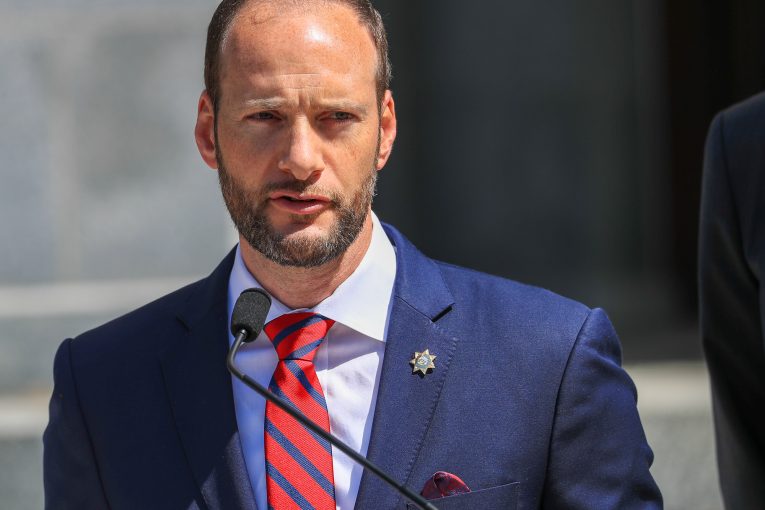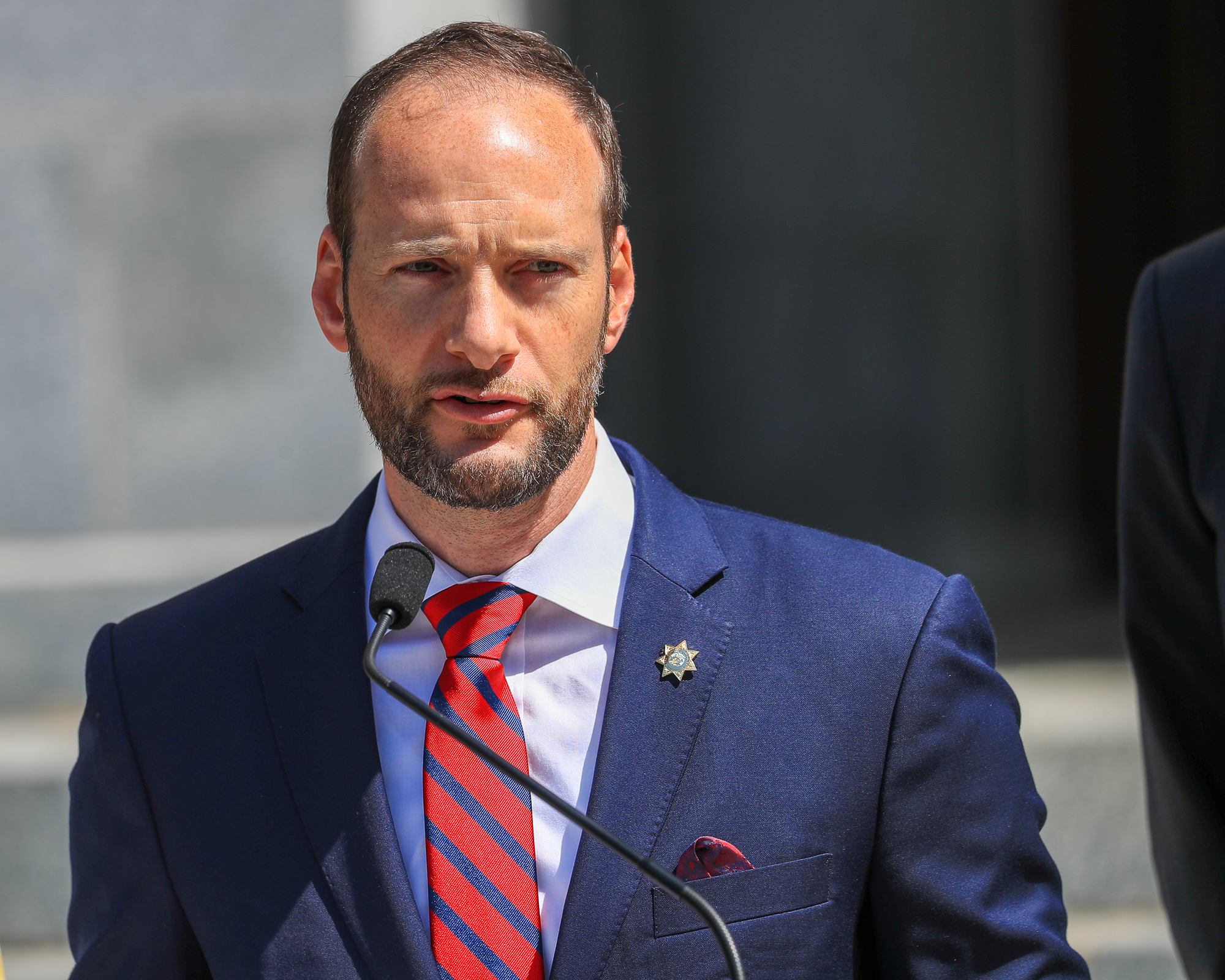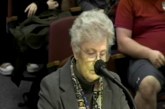

By David M. Greenwald
Executive Editor
San Francisco, CA – The No Recall Campaign has a poll that shows the race is tied as to whether or not to recall Chesa Boudin. Color me skeptical for now about it. After all, most of the “neutral” polls are showing Boudin going down rather handily.
For example, Gil Duran of the Examiner reports, “It’s hardly news at this point, but San Francisco voters will almost certainly oust District Attorney Chesa Boudin next week. A new Examiner poll of 541 likely voters conducted by Change Research from May 26-29 shows 56% in favor of recalling the DA, who has a disapproval rate of 62%.”
Duran writes, “The poll is the latest public survey to show Boudin losing big. While I don’t support the recall, I’m also not a fan of poll-denialism. Barring a literal miracle, Boudin is done.”
While I too am not into poll denial, I am a bit more skeptical about the ability to properly sample a small population, particularly when the turnout thus far has been less than 20 percent and expectations are that there will be an extraordinarily low turnout.
The Boudin campaign commissioned the company Telegraph to do their own poll. A few weeks ago the internal Boudin poll showed them down about 10—down but not out. This one shows a dead heat—47-47 with 4 percent undecided.
They polled 3029 voters and it was described as a random sample text poll.
I remain skeptical about the validity of the poll, but there are some factors that seem to suggest that Boudin might have at least a fighting chance—most of the elected  officials have not backed the recall, the media coverage which was decidedly against him early on has debunked a lot of the most critical claims against him, and most publications are opposing the recall.
officials have not backed the recall, the media coverage which was decidedly against him early on has debunked a lot of the most critical claims against him, and most publications are opposing the recall.
The most difficult question might be to nail down who is actually going to vote and whether the small universe of voters will help or harm Boudin.
When I spoke with Julie Edwards from Boudin’s anti-recall campaign, she was almost buoyant.
“We have been seeing and feeling the momentum throughout the last several weeks of this campaign,” Edwards told me. “When Chesa Boudin is out in neighborhoods and talking to voters, we’re getting an overwhelmingly enthusiastic response. People coming up to him and telling him that they support him, that they’re voting, that they sent their ballot in, that it’s waiting to be sent in.”
She added, “I think that people are recognizing that all the institutions and organizations and leaders that they trust are opposing this recall. I think they are fed up with the mountain of lies and money sweeping the city, attacking Boudin falsely.”
In short, Edwards said she believes that this poll they took is a true picture of what is happening, “I think that people have started focusing on this election and have been doing their research.”
She also believes, “There is a growing recognition that the tactics the recall was using were just based in dishonesty and division and people are more skeptical of their claims because of that.”
In one ad that was run by the recall campaign, a guy claimed that he had to close the doors of his bar because of rampant drug dealing.
“The clear implication of that ad was to blame Chesa for that,” Edwards said. “But the bar closed in 2019. It closed before he ever took office. It closed before he was elected.”
Edwards said, “That came to light, a reporter reported on that, and asked the recall for their take and they wouldn’t address the fact that it was misleading.”
She said, “More and more of those stories come to light, and people are appropriately skeptical of the claims from the recall committee.”
There are a lot of added factors in all of this.
For example, if you choose to believe the Examiner poll that Boudin will be handily recalled, it is hard to know what exactly that means.
Duran for instance writes, “Many will interpret his defeat as a verdict against criminal justice reform, but the poll suggests the truth is more complicated. While most voters disapprove of Boudin and 66% say they feel less safe than they did 10 years ago, they continue to express strong support for reform.”
You can certainly question whether voters should actually feel less safe than they did 10 years ago—the data doesn’t seem to back that up and that’s been part of the problem with the whole narrative.
Even if you believe that things have gotten worse in San Francisco, it’s by no means clear that Chesa Boudin’s policies are leading to that outcome.
Rachel Marshall in a recent op-ed in the Chronicle noted Anne Marie Schubert “attacked reforms to make parole more accessible and has pushed for harsher punishment for minor crimes like thefts.
“But her anti-reform approach does not promote safety; Sacramento has seen a dramatic increase in crimes, including homicides. Just last month, a mass shooting in Sacramento took six lives and injured 12. Nonetheless, Schubert has falsely blamed progressive prosecutors throughout California for upticks in crime.”
The same polling, that shows San Franciscans about to oust Boudin, are also showing Rob Bonta handily defeating Schubert in San Francisco, not to mention statewide.
As Duran put it, “They may not like Boudin, but they also don’t like the prison industrial complex.”
He argued, watch what happens to Michael Shellenberger and Anne Marie Schubert, who are running “tough on crime” campaigns focused on drugs and homelessness.
He writes, “Despite their fanatical criticism of Democratic reforms and their promises to crack down, neither of these retrograde reactionaries is expected to survive the primary. Gov. Gavin Newsom and Attorney General Rob Bonta—the state’s main reformers—will sail to victory in November.”
We will end up seeing who is right about Boudin, but, in the larger picture, despite a rough couple of years, it looks like the overall reform effort may just survive.






